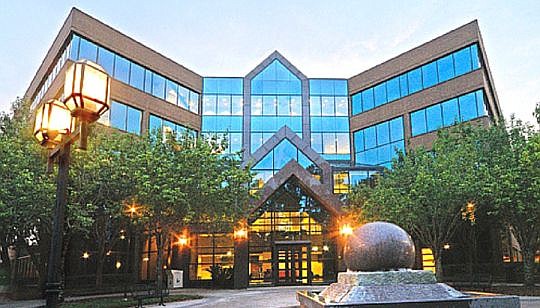
InfiLaw owns three for-profit law schools in the U.S.
Arizona Summit Law in Phoenix and Charlotte Law School in North Carolina were placed on probation in November by the American Bar Association, and Charlotte in December became the first law school in history to lose access to student loan programs administered by the U.S. Department of Education.
At issue are admission standards, quality of education and how relatively few of the schools’ graduates pass the Bar exam on their first attempt.
That leaves Florida Coastal School of Law, and the local legal education provider is taking steps to avoid sanction by the ABA.
Responding by email, Florida Coastal Dean Scott DeVito said the school has been concerned that Bar exam passage rates are “well below where our models predicted they would be.”
According to the Florida Board of Bar Examiners, in the eight Bar exams administered since February 2013, Florida Coastal graduates bettered the first-time pass rate for all law schools in the state only once (see chart).
According to the education-rating website startclass.com, combining results from law schools in Florida and Georgia – the states Florida Coastal students are most likely to take the Bar exam – the average first-time pass rate is 61.6 percent, compared to 68.4 percent for all law schools.
DeVito said Florida Coastal is changing the curriculum, teaching methods and raising admission standards beginning with students entering school this fall.
According to the startclass.com, Florida Coastal students have a median LSAT of 144, one of the lowest among all law schools. The average undergraduate GPA of incoming students is 2.87, also described as one of the lowest among all law schools, where the average is 3.39.
In addition, the website says Florida Coastal extends offers to 59.1 percent of applicants, higher than the 52.2 percent average for all law schools.
And they don’t stick around.
On average, 8.4 percent of first-year students at all law schools and 1.6 percent of second-year students leave school. At Florida Coastal, 38.6 percent of first-year and 12.8 percent of second-year students leave, according to the website.
DeVito said that over the past two years, Florida Coastal’s “primary successes” have been in graduates getting jobs.
Based on the school’s most recent annual survey of students nine to 10 months after graduation, 87 percent of students who passed the Bar exam have full-time attorney jobs, a 10 percent increase year-over-year, he said.
DeVito also said the changes at Florida Coastal were not prompted by concerns the school might be headed toward penalties from the ABA.
“While we worry about those things in general, it really was not and is not the driver for us,” he said, adding that policy and procedures at Florida Coastal are always based on “what is in the student’s interest.”
DeVito also cited the 50 percent national decrease in law school applications that has affected Florida Coastal.
The spring class was only 25 students, but DeVito said the fall class has a target of 100 to 120 students.
Looking ahead, DeVito said, without giving any details, there are two main goals for Florida Coastal: to “convert to a nonprofit entity” and to “join with a nonprofit university that makes sense for our students.”
Attention also is being given to the cost of getting a degree at the school and ways to increase scholarship availability.
“As we move to nonprofit, we will be able to raise an endowment to support scholarships,” DeVito said.
The school cites its success in preparing students for employment in many different areas that intersect with the public, including public interest law, immigration, human rights, juvenile rights, elder law and legal system access for military personnel and veterans.
“We are the first to admit that we have made mistakes — and judge us for those mistakes that we have made — but also try to see the good that we are doing,” said DeVito.
InfiLaw did not respond to phone calls or an email requesting a response for this story.
The percentage of Florida Coastal School of Law students who passed the General Bar Exam on the first try vs. the average of the 11 law schools* in Florida.
*Includes, in addition to Florida Coastal: Ava Maria, Barry University, Florida A&M University, Florida International University, Florida State University, Nova Southeastern University, St. Thomas University, University of Florida and University of Miami.
Source: Florida Board of Bar Examiners
(904) 356-2466